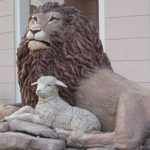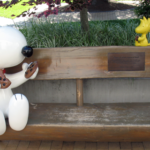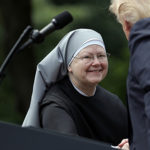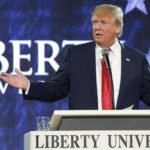To remain competitive, sports teams analyze their strengths and spotlight areas that need improvement.
If America’s religious communities did the same, here’s how those reports might look:
• Team Catholic must recruit more Spanish-speaking men and women to serve as priests and nuns. The sexual abuse scandal has damaged clergy morale and created anger among laypeople, some of whom have left the church. Parochial schools, once the team’s crown jewels, are shrinking in number even as the number of non-Catholic students is increasing in some cities. Many Catholics believe the Vatican “front office” must adapt to new demographic, technological and media challenges. While lots of team loyalty remains, it is being severely tested.
• Team Evangelical has had a heady run for 30 years, but the glory days of rapid growth and wedge-issue electoral victories—guns, God and gays—are over. Aging managers Pat Robertson and James Dobson are no longer winning political contests, and younger team leaders like Rick Warren want to play in a different league that addresses poverty, global ecology and even gay rights. Once accustomed to easy wins, Team Evangelical is currently in a slump due to overconfidence, internal dissension and morally irresponsible financial and sexual acts by some of its leaders.
• Team Liberal Protestant, once the dominant spiritual force in the United States, needs immediate help in all phases of its game. The team has a rich legacy of seminaries, libraries and luminaries, but it cannot coast on the winning record of the past. Many younger Americans are not choosing this team and are “playing” elsewhere. If Team Liberal Protestant wants to remain viable in the religious major leagues, it needs to return to the basics and rebuild from the ground up. Perhaps the team will become smaller in size, but it will have more focus.
• With the election of Barack Obama, Team Black Church has an extraordinary opportunity to expand its national influence. Many team leaders are charismatic, issue-oriented and know how to play in the larger American spiritual and political arenas. But the team’s major weakness is that many men between age 18 and 40 are absent from the team roster; they need to be aggressively sought out, signed to lifetime “spiritual contracts” and given key positions on the varsity squad.
• Team Mormon continues to grow but still faces sharp questioning from critics like Baptist minister-turned-politician Mike Huckabee. Mitt Romney’s recent run for the Republican presidential nomination forced the former Massachusetts governor to “explain” his religious beliefs and those of his church. His efforts were awkward, and Romney failed to stop the broad-based suspicion of his religion. The team also was not helped by continuing reports of polygamy and the posthumous baptizing of non-Mormons.
• Team Eastern Orthodox frequently is perceived as a collection of “ethnic” churches—Greek, Russian, Ukrainian, Romanian and Serbian—that does not welcome newcomers. Though small in numbers, the team has, however, attracted new members from other Christian groups because of its ancient liturgy and traditional theology.
• Like every other faith community today, Team Judaism confronts a severe financial crisis, and—because its members are a minority living in a friendly sea of acculturation—group identity and continuity are the team’s major concerns. Currently, there are four major Jewish denominations, but observers predict the fiscal crunch combined with the Reform movement’s turn toward increased religious tradition and observance ultimately will create two major teams on the Jewish playing field—Orthodox and Progressive. Team Judaism also is inextricably and passionately committed to the security and survival of Team Israel, a group that plays in the turbulent and violent Middle East league.
Sign up for our weekly edition and get all our headlines in your inbox on Thursdays
• Team Islam has three distinct sets of players—African-Americans, Arabs and “Indo-Pakistanis.” Many in the latter two groups are immigrants and only now are learning the U.S. religious “game.” Because of Muslim extremists in many parts of the world, Team Islam faces mistrust and suspicion from much of the American public.
• Team Atheist is becoming better organized and is gaining both publicity and visible members in the United States. It seeks a permanent place in the religious big leagues and clearly is a team to watch in the years ahead.
James A. Rudin is the American Jewish Committee’s senior interreligious adviser and author of The Baptizing of America: The Religious Right’s Plans for the Rest of Us. His column is distributed by Religion News Service.














We seek to connect God’s story and God’s people around the world. To learn more about God’s story, click here.
Send comments and feedback to Eric Black, our editor. For comments to be published, please specify “letter to the editor.” Maximum length for publication is 300 words.